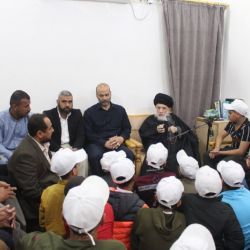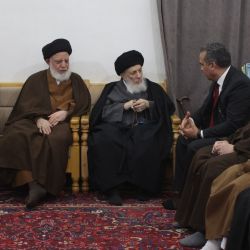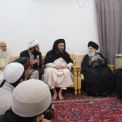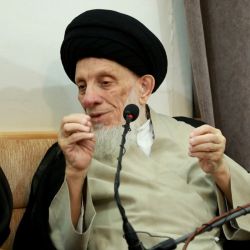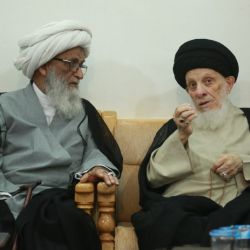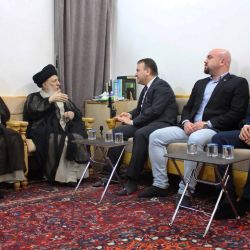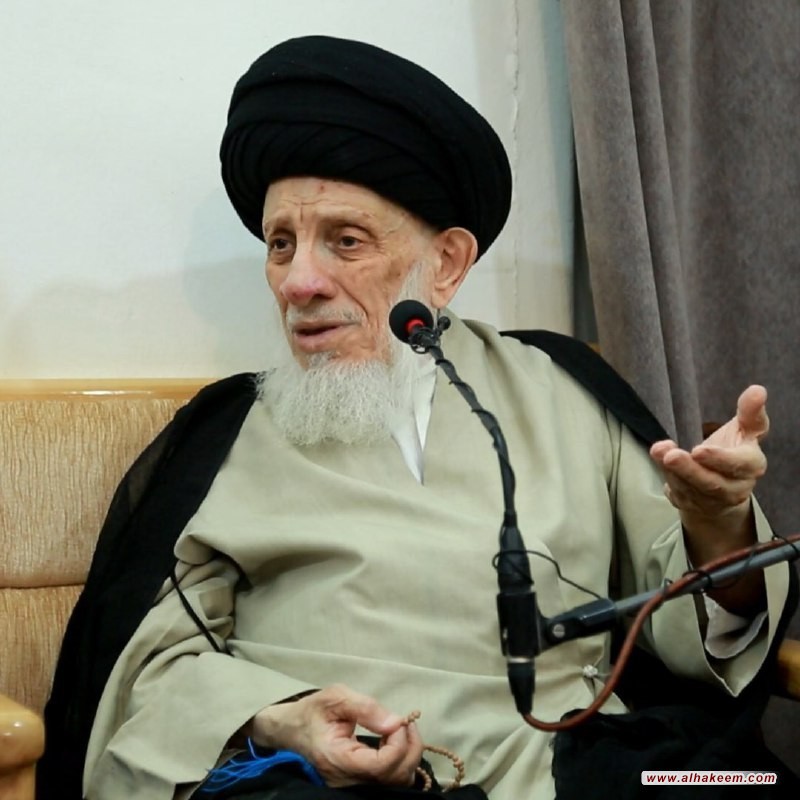
Grand Ayatollah Sayyid Mohammed Saeed al-Hakeem praised the sacrifices of the oppressed female freed prisoners of the Shiite Turkmen and Shabak, who were subjected to a great injustice, by the Dash criminals, who invaded the sanctities, sacred places and souls. His Eminence recommended all, especially believers, tribal chiefs and others to be proud of them and respected them, and honored them.
This took place during the reception of His Eminence to the female prisoners of the Shia Turkmen and Shabak, Tuesday, the 16th of July, 2019 who were freed from the hands of Dash criminal gangs.
His eminence, advised them to at the highest level of psychological comfort and since the oppressed should not consider injustice to be a disgrace to him. His eminence was pointing to the words of Imam Ali (peace be upon him): “a believer is not belittled when being oppressed.
At the end of the reception, His eminence asked the Almighty Allah to avenge them from their oppressors, and to compensate them with the best awards in this world and the hereafter.

